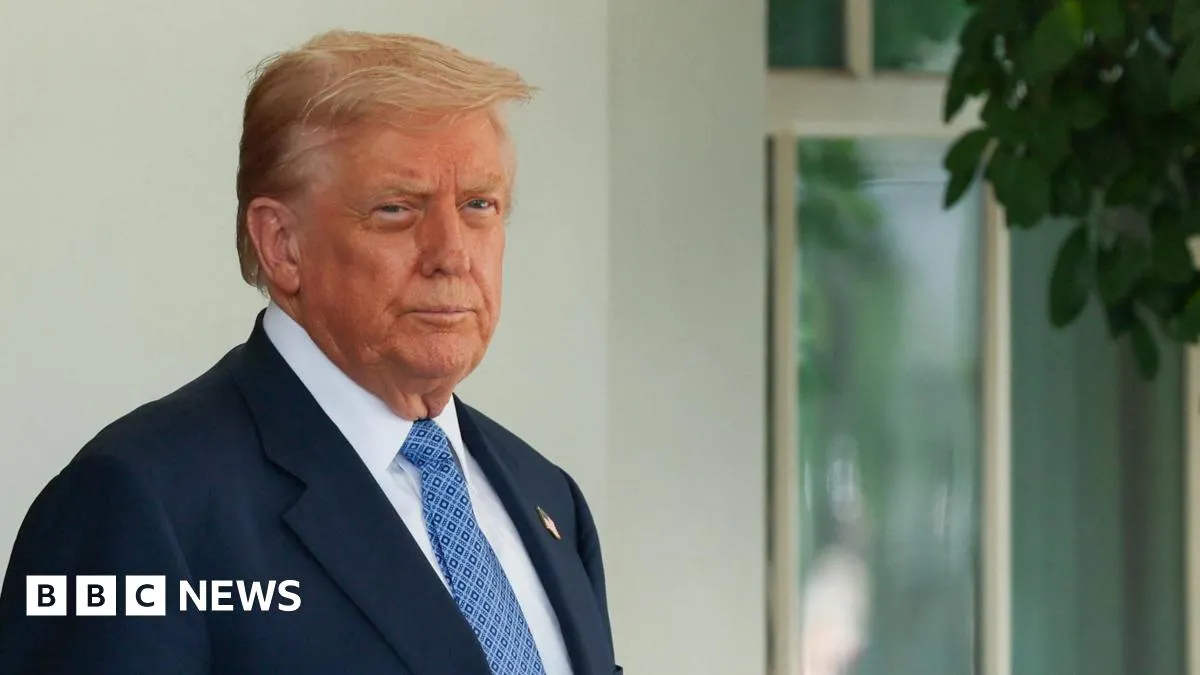
In a recent announcement, US Attorney General Pam Bondi made a bold statement declaring that crime in Washington, DC is coming to an end. Speaking at a press conference, Bondi emphasized her commitment to using every available power to combat crime, naming key law enforcement officials who will lead the charge, including FBI Director Kash Patel and Jeanine Pirro, the newly confirmed DC Attorney General and former Fox News host.
Despite the strong rhetoric from Bondi and President Trump, the reality of violent crime in Washington DC tells a different story. Recent statistics from the Metropolitan Police Department reveal that violent crime has been on a steady decline, reaching a 30-year low. Critics argue that President Trump is capitalizing on public sentiment rather than factual data, using high-profile incidents, such as the attack on Elon Musk protégé Edward Coristine, to fuel fear.
As part of Trump's plan to restore safety, Defence Secretary Pete Hegseth announced the imminent deployment of the National Guard in Washington DC. Under Trump's directive, specialized units are set to arrive in the city within the week to assist local police forces. This marks the first deployment of National Guard troops to DC since the events of January 6, 2021, when a violent mob stormed the Capitol.
Interior Secretary Doug Burgum spoke about the government's efforts to tackle homelessness in the city, stating that the US Park Police will be actively removing homeless encampments to protect national monuments and enhance the city's appearance. Trump echoed these sentiments, suggesting that rather than increasing police numbers, new rules and regulations should be enforced to address crime effectively.
During his address, Trump made inflammatory comments regarding youth crime, claiming that "caravans of youths" are wreaking havoc in the streets. He expressed concern over the behavior of young offenders and criticized their disrespect towards law enforcement. This rhetoric has been met with skepticism, as many argue it diverts attention from more pressing issues related to homelessness and socioeconomic factors.
Trump also referenced several violent attacks on government officials in DC, framing them as a national threat. He specifically mentioned a former employee of the Department of Government Efficiency who was brutally assaulted, claiming such incidents undermine the functioning of the federal government and pose a significant threat to America.
In response to Trump’s crackdown on crime and homelessness, a protest emerged outside the White House. Activists chanted slogans like "hands off DC" and "protect home rule," arguing that Trump's actions are more about control than actual safety. A spokesperson at the event condemned the administration's approach, claiming it terrorizes families rather than providing security.
As federal agents spread throughout Washington DC, Trump's social media statements indicated a swift move to remove the homeless from the area. Reports noted the presence of various federal law enforcement agencies, including the FBI and DEA, with around 450 officers deployed to monitor high-traffic areas, including popular nightlife spots.
Donald Whitehead, executive director of the National Coalition for the Homeless, voiced concerns regarding Trump's conflation of homelessness with crime. He explained that unhoused individuals are more often victims than perpetrators of crime, emphasizing that moving encampments could actually increase crime rates rather than decrease them. Whitehead pointed to broader systemic issues, like rising housing costs, as key contributors to the homelessness crisis.
As Trump seeks to address the perceived rise in crime, he faces criticism for focusing on appearances over actual statistics. Although crime rates in Washington DC have decreased significantly over recent years, high-profile incidents have drawn public attention. Trump's administration is attempting to navigate these issues while dealing with declining poll numbers and economic challenges.
In response to Trump's assertions, Washington DC Mayor Muriel Bowser refuted claims of a crime spike, stating that violent crime is at a 30-year low. Bowser acknowledged a troubling spike in 2023 but highlighted the city's progress in reducing crime since then, calling comparisons to war-torn areas "hyperbolic and false."
Trump has outlined his vision for revitalizing Washington DC, promising to make the city safer and more aesthetically pleasing. He expressed intentions to tackle both crime and homelessness aggressively, emphasizing the need for immediate action. With plans to enhance the capital's cleanliness and safety, Trump continues to draw attention to the city's challenges while navigating the complex landscape of public perception and political reality.